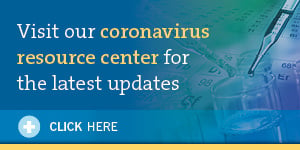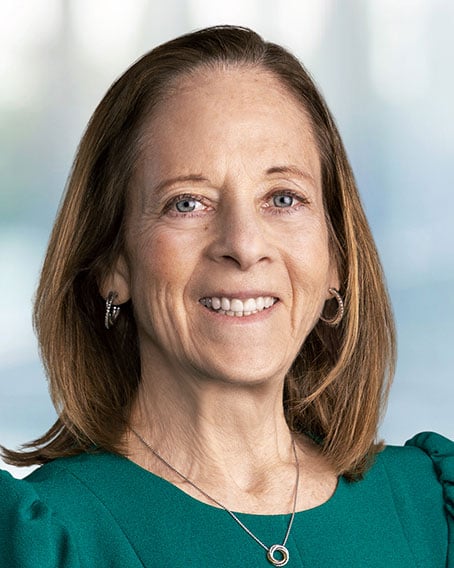On April 27th, the Health Resources & Services Administration (HRSA) launched its portal for reimbursement of uninsured COVID-19 testing and treatment funded by the Families First Coronavirus Response Act (FFCRA) and the Public Health and Social Services Emergency Fund (Emergency Fund). This alert outlines the Department of Health and Human Services (HHS) and HRSA’s newly released guidance regarding funding for the testing and care of uninsured individuals, as well as HHS’s additional guidance and revised terms and conditions for the $50 Billion “General Distribution” from the Emergency Fund. This updated guidance follows our discussion of these programs in our previous Alert.
Reimbursement for Uninsured Testing Services and Care
The FFCRA appropriated $1 billion for COVID-19 testing. Separately, HHS has elected to allocate an undefined portion of the $100 billion Emergency Fund to provide care or treatment for those with positive diagnoses of COVID-19. Unlike the General Distribution fund, which is available only to Medicare-enrolled providers and suppliers, these funds are available to any health care provider involved in the provision of COVID-19 testing and treatment if such provider is not terminated, or currently excluded from participation in federal health care programs and does not currently have its Medicare billing privileges revoked (Recipients).
When submitting claims, providers must attest that all items and services were medically necessary and that, to the best of the Recipient’s knowledge, the patient was uninsured at the time the Recipient provided the care.
Providers can register for training webcasts scheduled on April 29th, at 2 PM Eastern Time, and on April 30th, at 2 PM Eastern Time. Accompanying the launch of the portal is an FAQ, and the portal itself provides additional guidance. The system will begin accepting claims on May 6th.
Uninsured Testing and Treatment
Under the FFCRA, uninsured individuals are individuals who, as of the date of service, were not enrolled in a federal health care program, group health plan or health insurance coverage offered by a health insurance issuer in a group or individual market as defined in 42 U.S.C. 300gg-91, nor a health plan regulated as a health insurer under 5 U.S.C. ch. 89. The funding covers both “testing” for the detection or diagnosis of the virus, as well as “testing-related items and services” furnished during visits that result in an order or administration of COVID-19 testing. The Emergency Fund will reimburse providers who care for uninsured individuals, defined as those who do not have any health care coverage at the time the services were provided.
Eligible Claims
Providers can begin submitting eligible claims electronically on May 6, 2020. HRSA will reimburse claims for COVID-19 testing and testing-related services, as well as antibody testing. The funds also will cover treatment items and services when COVID-19 is the primary diagnosis code, as well as treatment for pregnant patients when COVID-19 is a secondary diagnosis. The funding will not cover hospice services or outpatient prescription drugs. To be eligible for reimbursement, the relevant testing and/or care must have occurred on or after February 4, 2020.
Payment Terms
HHS will generally pay for testing and treatment at 100 percent of Medicare rates. These rates will not include the 20% increase to the DRG payments authorized under the CARES Act for Medicare patients at hospitals paid under the inpatient prospective payment system (IPPS). For non-IPPS hospitals, the relevant reimbursement rates for care provided to the COVID-19 uninsured will not be updated after February 4 for purposes of this program, even if the standard rates for these hospitals reflect rate increases made in response to COVID-19. Home health care will be reimbursed based on a per-visit methodology by service type. Claims using any code without a CMS published rate will be held until CMS publishes reimbursement information. HHS’ Terms and Conditions for the uninsured relief fund state that for these services there will be some as yet undetermined “calculated average rate.”
HRSA has published separate Terms and Conditions for testing and treatment of the uninsured. The Recipient must certify, for example, that it will not use the Payment to reimburse expenses or losses that have been reimbursed from other sources or that other sources are obligated to reimburse. If the Recipient receives such reimbursement, it must return to HHS the portion of the Payment that duplicates payment or reimbursement from another source. In addition, the Recipient must certify that it will not include costs for which Payment was received in its cost reports or otherwise seek reimbursement for uncompensated care through federal or state programs for items or services for which Payment was received.
In addition, as a condition of accepting payment for treating the uninsured, Recipients must agree not to “balance bill” patients for any costs not covered by the Payment. In addition, if the Recipient has charged cost-sharing fees to any uninsured patients, it must refund any payments received and notify those patients that they do not owe the Recipient any money for the associated care or treatment. All claims submitted must be full and complete (i.e., no interim bills or corrected claims), all payments are final, and there will be no adjustments. These Terms and Conditions include quarterly reporting and require compliance with various statutory provisions similar to the Terms and Conditions for General Distribution.
Payments are expected to begin May 18th at the earliest.
Additional Guidance for the $50 Billion General Distribution; Portal Available
FAQ and Application for Remaining Funds
HHS has announced an application process for providers to access the remainder of the General Distribution fund and has released an FAQ with technical requirements and examples. Any provider who already has received a payment from the Emergency Fund as of 5 PM Eastern Time on Friday, April 24th is eligible to apply for additional funding through the Provider Relief Fund Application Portal. HHS is collecting the following data:
- A provider’s “Gross Receipts or Sales” or “Program Service Revenue” as submitted on its federal income tax return;
- The provider’s estimated revenue losses in March 2020 and April 2020 due to COVID-19
- Providers “may use a reasonable method” of estimating the organizations’ lost revenue for March and April compared, or by comparing budgeted revenue to actual revenue.
- For April 2020, providers can use an estimate of the total monthly loss based on data from the first few weeks in April or an extrapolation from March data.
- A copy of the provider’s most recently filed federal income tax return;
- A listing of the tax identification numbers of any of the provider’s subsidiary organizations that have received relief funds but that do not file separate tax returns; and
- Emergency Fund payment transaction numbers/check numbers.
This information will be used both for the General Distribution and for other Emergency Fund distributions. Each entity that files a federal income tax return is required to file an application even if it is part of a provider group. Providers that have already received Emergency Fund payments as of 5 PM Eastern Time on April 24th and have filed a federal tax return in 2017, 2018, or 2019 are required to file a separate application. The FAQ details the scenarios for when a separate application is required.
Timing of Payment
Applicants should receive funding or other response within 10 business days of their application. Funding will not be distributed on a first-come-first-served basis. Applicants will be given equal consideration regardless of when they apply. HHS will be processing applications in batches every Wednesday at 12:00 noon Eastern Time. HHS states there will be no mechanism to contest the funding amount awarded.
Changes to the Terms and Conditions
HHS has revised the Terms and Conditions for the General Distributions, including the following. HHS has also incorporated these same changes into the Terms and Conditions for the funding for uninsured testing and treatment.
- Certification of Accuracy: Each Recipient is required to certify that “all information it provides as part of its application for the Payment, as well as all information and reports relating to the Payment that it provides in the future at the request of the Secretary or Inspector General, are true, accurate and complete, to the best of its knowledge.” Furthermore, Recipients must “acknowledge[] that any deliberate omission, misrepresentation, or falsification of any information contained in a request for reimbursement or future report may be punishable by criminal, civil, or administrative penalties, including, but not limited to, revocation of Medicare billing privileges, exclusion from federal health care programs, and/or the imposition of fines, civil damages, and/or imprisonment.”
- Public Disclosure of Funding: With respect to the second, $20 billion tranche of the General Distribution and the funding for the uninsured testing and treatment, Recipients must consent to HHS disclosing the payment that Recipient may receive from the Emergency Fund or the FFCRA fund, as applicable. Further, the Terms and Conditions for the $20 billion tranche require that the Recipient “acknowledge[] that such disclosure may allow some third parties to estimate the Recipient’s gross receipts or sales, program service revenue, or other equivalent information.”
HHS has also established a centralized index with the Terms and Conditions for each funding stream of the Emergency Fund.
The distributions outlined above do not take into account the proposed additional $75 billion that could be appropriated to the Emergency Fund under the Paycheck Protection Program and Health Care Enhancement Act enacted on April 24, 2020.
* * *
The guidance from HHS and other agencies on federal funding is constantly evolving. Please visit the Ropes & Gray Coronavirus Resource Center for more information and updates regarding COVID-19 provider funding relief.
Authors
Stay Up To Date with Ropes & Gray
Ropes & Gray attorneys provide timely analysis on legal developments, court decisions and changes in legislation and regulations.
Stay in the loop with all things Ropes & Gray, and find out more about our people, culture, initiatives and everything that’s happening.
We regularly notify our clients and contacts of significant legal developments, news, webinars and teleconferences that affect their industries.




